ABOUT INNOVA SCHOOLS
Pedagogical
The focus of Innova Schools Colombia is oriented towards the development of the personal being whose essence is centered on forming people capable of coexisting by making decisions oriented towards the common good.
It permanently seeks to understand and promote a reflective awareness of the responsibility of being protagonists of human and environmental sustainability.
In other words, to train citizens with the skills to coexist with others, to be part of a changing environment, to address complex challenges and to manage knowledge.
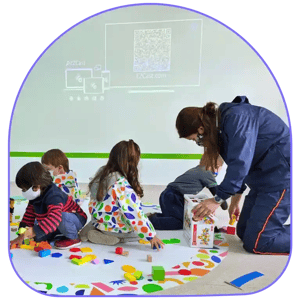
Pedagogical Strategy
This model establishes that knowledge is constructed through social interactions, action and inquiry.
It is essential to encourage an active role of the student in their learning and respect for their development process, where they feel stimulated by the environment and seek to act on reality, transform it and can become, also, transformed by it.
We assume the idea of competence from the approach of complex thinking.
Students develop 21st century competencies, i.e., all those relevant to give students the opportunity for personal and professional development.
At this juncture, technology plays a key role, in that it has transformed and will continue to transform the way knowledge is produced and involves the development of learning processes in which technology is highly integrated.
Learning to learn refers to a lifelong learning orientation, through knowledge, skills and attitudes for the formation of the new citizens of a global society (Unesco, 1996).
It is based on having the skills to start learning and being able to continue learning in an effective, autonomous and procedural way, with flexibility and adaptability to a constantly changing world and in accordance with their own objectives and needs.
Learning environments play a determining role in the development of our Pedagogical Strategy.
ISC fosters learning environments that promote communication and encounter among the members of the educational community, give rise to resources and academic scenarios that encourage curiosity, dialogue and creative capacity, and show the free expression of ideas, interests and needs without exception.
The pedagogical strategy at Innova Schools Colombia consists of the following elements:

Bilingualism
Why is Bilingualism important?
For three fundamental reasons:
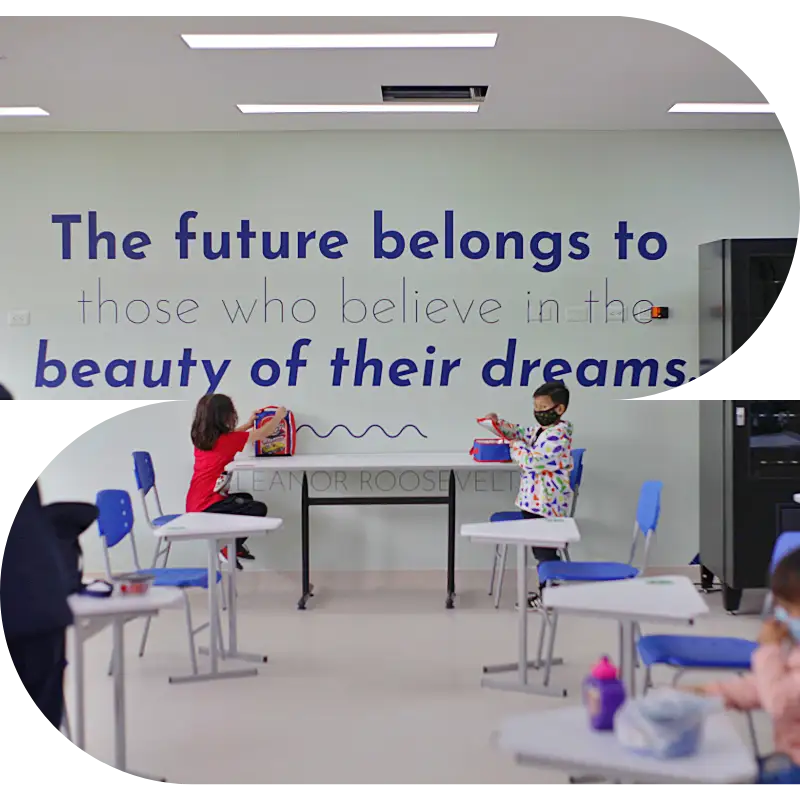
Research has shown that bilingual or multilingual individuals have significant cognitive advantages over monolinguals, such as improved planning ability, greater focus, better behavioral regulation, and greater flexibility in their thinking.
By emphasizing bilingualism, we are also building the cognitive skills that students will need in all disciplines.
English has been selected as the foreign language taught at IS Colombia because of the instrumental advantages it provides to students as the most widely used language in the academic, technological and professional world to which students will eventually have access.
Whatever path students choose to take after Innova, whether in college, graduate school or the professional domain, English is an essential skill that will allow them to navigate these spaces with confidence and ability.
English is a cultural and creative medium in which students have access to a world of music, film, theater, literature, art and technology that they can appreciate and contribute to in the future. English offers a lingua franca that can connect these diverse forms of expression to the interests and identities of Innova students.
It is essential that our efforts toward creating a bilingual environment guide students to learn to appreciate and value their own individuality through exposure to and understanding of other cultures.
What is Bilingualism like at Innova Schools Colombia?
From the earliest ages, students will be introduced to authentic English spoken by native speakers.
Innova Schools Colombia will hire native English-speaking co-teachers -cultural agents- to provide genuine and accurate English language skills to every student in kindergarten, preschool, transition and grade 1.
Communication between English language learners and native English speakers has been shown to be a key to boosting literacy.
At Innova Schools Colombia, we believe that English is best learned when the learning process is more like how children actually learn a language.

These are the pillars of our Bilingualism program
Language can be used to learn almost anything and our instruction should not be limited to language alone.
We understand the importance of developing Spanish and English so that learning one language strengthens the other.
Learning English should not be limited to the classroom. We want students to take English experiences back to their families and communities.
The foreign language experience only comes with the creation of quality learning experiences and high-level teachers.
Cultural Agents Program
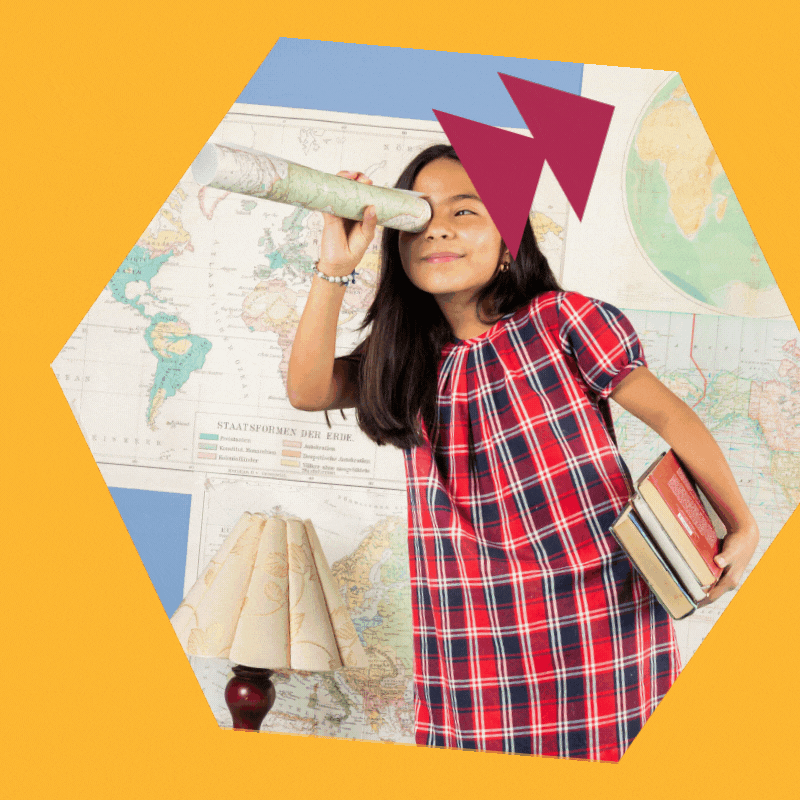
The Cultural Agents Program at Innova Schools Colombia is a central component of the bilingual education offered to our students and families.
The design of the bilingual program recognizes the importance of the preschool years in terms of second language acquisition, which is why the Cultural Agents Program promotes high quality English language exposure and input during this crucial stage of language development.
The Cultural Agents Program recruits native English-speaking educators from diverse backgrounds around the world to serve as assistant teachers in Innova Schools Colombia's Discovery Stage classrooms.
LANGUAGE IS NOT SIMPLY A TOOL.
It is our legacy, our way of transmitting what it means to be human.
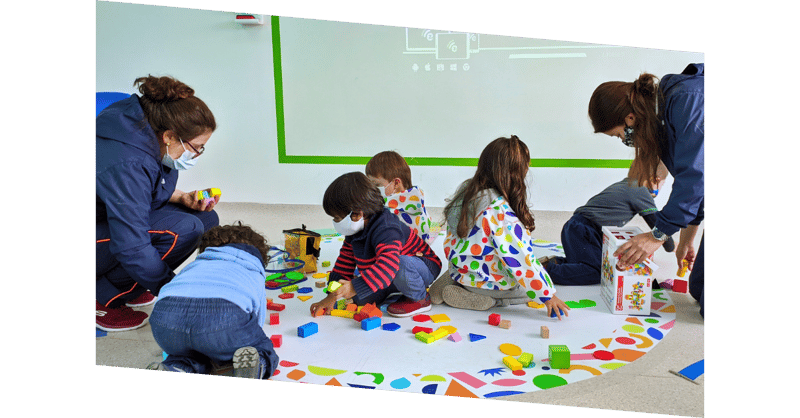
What is Project Based Learning?
Innova Schools Colombia recognizes that human beings are a whole with their knowledge, skills, talents, interests and needs, for this reason learning should occur in a natural and integrated way through cross-cutting experiences that allow us to really understand the world in a systemic way and be active and innovative agents to advance giving answers, solutions and/or alternatives to the problems of humanity.
Project Based Learning (PBL) is a methodology that allows fulfilling this premise, implementing a set of tasks based on the resolution of questions or problems (challenges) through the development of research, analysis and/or creation by students. This methodology involves autonomous and collaborative work in an authentic process that leads to production in a real way, using the students' ideas and completing the tasks in practice.
The curricular design of Innova Schools Colombia has been conceived from the ABP methodology as follows:
★ Discovery Stage
★ Projects integrated by dimensions
★ Exploration, Construction and Connection Stages
★ Integrated projects from three lines of training: STEM (Mathematics, Natural Sciences and Technology).
★ Thinking and Citizenship (Social Sciences, Ethics and Values, Religious Education, and Spanish Language).
★ Expression and Creation (Art Education and Physical Education)
Collaborative Learning
What is Collaborative Learning?
Collaborative work, as a strategy for the development of teaching and learning processes in the classroom, is part of this conception.
The essential elements of Collaborative Learning (CL) are:
- 01 Positive interdependence
- 02 Individual and group responsibility
- 03 Stimulating interactions
- 04 Essential interpersonal and group skills
- 05 Group evaluation
The teacher proposes the goal and the activities to be developed while the student members of the work team clearly understand that the efforts of each member not only benefit him or herself but also the other members.
This positive interdependence creates a commitment to the success of others, in addition to one's own, i.e., one is attentive to the needs and difficulties of others, which is the basis of collaborative learning.
The team must take responsibility for achieving its goals and each member will be held accountable for completing his or her share of the work. Individual accountability exists when each student's performance is evaluated and the results of the evaluation are transmitted to the group and to the individual to see who needs more help, support or encouragement to perform the task. The purpose of collaborative learning is to strengthen each member, i.e., students learn together so that they can then perform better as individuals.
Students must work together to promote each other's success, sharing existing resources and helping, supporting, encouraging and congratulating each other's efforts to learn. Some of the most important cognitive and interpersonal processes can only occur when each student promotes the learning of others by verbally explaining how to solve problems, analyzing what they are learning, teaching what one knows to peers, and connecting current learning to prior learning. By promoting each other's learning, group members make a personal commitment to each other and to their learning goals.
The CA requires students to learn both the areas and the interpersonal and group practices necessary to function as part of a group (teamwork). Team members must know how to manage their work, make decisions, organize themselves, create a climate of trust, communicate, and handle conflict, and they must be motivated to do so. The teacher must guide the students in the practices of teamwork with the same rigor and precision as he/she guides them in the academic content.
This evaluation occurs when team members analyze the extent to which they are achieving their goals and maintaining effective working relationships. Teams must determine which of their members' actions are positive or negative, and make decisions about which to retain or modify. For the learning process to improve on a sustained basis, team members need to analyze how they are working and how they can increase the team's effectiveness.
What is the Blended Learning methodology?
Blended Learning is a formal learning strategy in which students learn partly through an "online" program with some level of autonomous control over time, place, pace or path of development; and partly through teacher-guided learning. (Innova Schools, 2015).
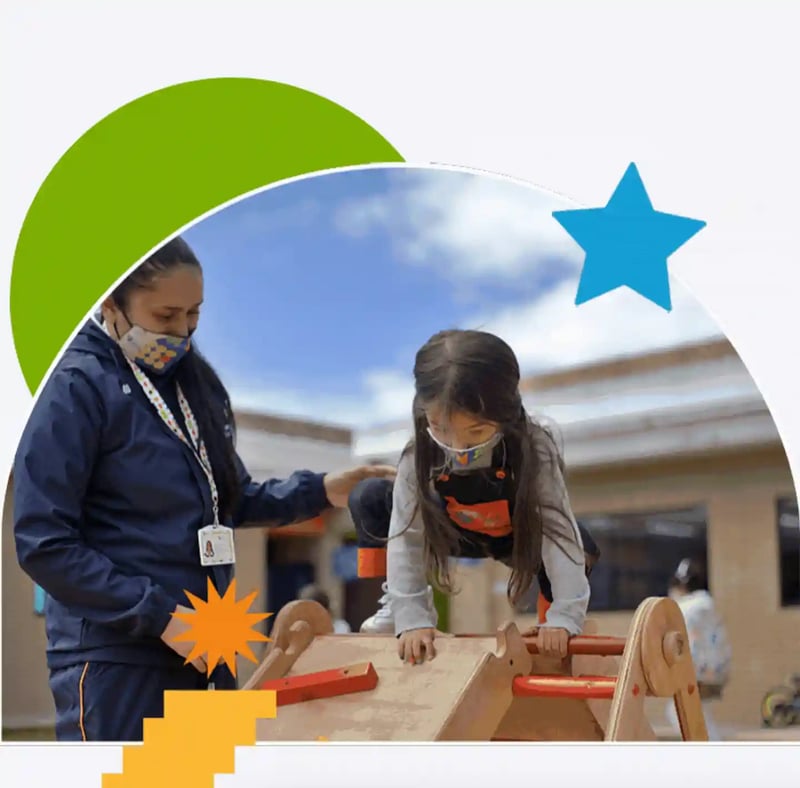
Blended Learning within Innova Schools contemplates three modalities:
- Group Learning
- Flipped Learning
- Solo Learning
Students collaborate with each other, with the mediation of a teacher, to investigate and build their knowledge.
- Role of the Student: Learns, investigates, questions, argues, reflects, communicates, complements and decides.
- Teacher's role: Organizes, proposes, accompanies, guides and provides feedback.
Students initiate their learning at home through materials, instruments, procedures, etc., and consolidate it in class by solving more complex situations to deepen their knowledge.
- Student Role: Investigates, explores, evaluates, questions, discusses, argues, practices, applies and links.
- Teacher's role: orients, mediates, transfers, links, provides feedback.
Students learn autonomously and at their own pace, with the help of technology and teacher feedback according to their particular needs.
- Student Role: Deepens, complements, collects, processes, self-evaluates, listens and moves forward.
- Teacher's role: Accompanies and provides differentiated feedback.
Technology as a learning tool
Innova Schools Colombia is based on the principle that technology, the teacher and teammates are mediators of the learning process for each student.
The role of technology in this pedagogical proposal is based on four principles:
1. By using technology, students can access much more knowledge than the school could give them with their own means.
Technology can and should revolutionize knowledge in schools. The role of the teacher should focus on helping students learn to use this tool to build their learning.
2. Technology can provide a lot of information about the level of student achievement, giving the student and the teacher the possibility to make decisions that make the learning process more effective.

3. The technology allows the student to perform real life simulations that allow them to be involved in complex tasks for the development of competencies.
4. Technology makes it possible to personalize learning to a greater extent than the teacher could do with his or her own means.
What is the Character & Personal Growth program about?
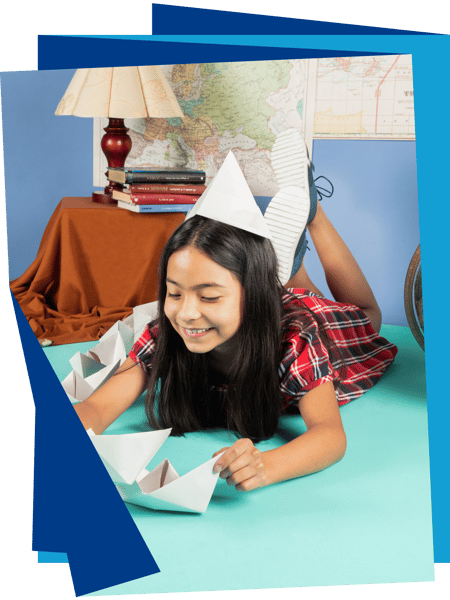
Innova Schools Colombia conceives the Character & Personal Growth program as a fundamental pillar of the integral development of the students who are part of its community, thus relating each and every one of the competencies and skills that have an impact on the Personal Being as an imprint for their life project, being able to transcend, to self-realize and to coexist with oneself, with others and with the environment in a holistic vision focused on the common good.
This process becomes an unsurpassable vehicle to develop aspects of character that are later used in efficient tools for life itself: strength, resilience, tolerance to frustration, effort, persistence, satisfaction of achievement and duty fulfilled, the importance of goals, step by step, following instructions, planning, execution and achievement.
All this ensemble encloses the vision of automatic fulfillment from the raison d'être and meaning of existence.





